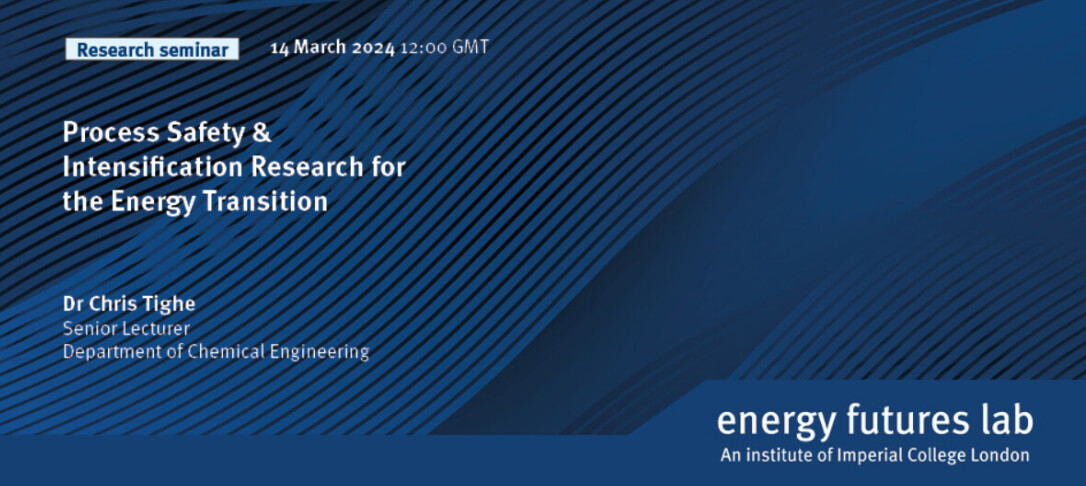
Process Safety & Intensification Research for the Energy Transition
There is no shortage of promising technologies, which may eventually contribute to decarbonising the manufacturing industries, transport, and our homes. As the need for action becomes more urgent, there is a concern that the risks associated with deployment of some of these technologies, on a huge scale, may not have been adequately thought through. In the first part of this seminar, a case-study on the delocalised production of methanol from renewable electricity, water and the direct air capture of carbon dioxide will be used to highlight hazards, which may become more prevalent in the energy transition. Opportunities for research in process safety and intensification will be outlined, to better understand and reduce the risks, and to improve efficiency and flexibility.
The second part gives an overview of measurements and mathematical modelling of the permeability of engineering polymers to CO2 and H2 at high pressures, relevant to the transport and storage of these gases. Polymers (particularly thermoplastics and elastomers) are commonly used in the process industries e.g. storage vessels and pipelines, liners to protect metals from corrosion, and components in fluid sealing. However, gases and liquids are soluble in polymers to a varying degree, resulting in a concentration gradient that drives diffusion between the polymer chains. Understanding and controlling the factors affecting polymer permeability is important for process safety, because flammable, corrosive and/or toxic substances may slowly accumulate in unexpected locations. Some fluids, such as CO2, are highly soluble in certain polymers; this causes them to swell, degrading their function, and potentially resulting in a catastrophic loss of containment.
Biography:
Dr Chris Tighe is a Senior Lecturer in Chemical Engineering and Principal Investigator of the Process Safety and Intensification (PSI) group. He previously worked in the oil, gas and petrochemicals industries (Texaco and BP), and in research and technological development (TWI, aka The Welding Institute).
About Energy Futures Lab
Energy Futures Lab is one of seven Global Institutes at Imperial College London. The institute was established to address global energy challenges by identifying and leading new opportunities to serve industry, government and society at large through high quality research, evidence and advocacy for positive change. The institute aims to promote energy innovation and advance systemic solutions for a sustainable energy future by bringing together the science, engineering and policy expertise at Imperial and fostering collaboration with a wide variety of external partners.